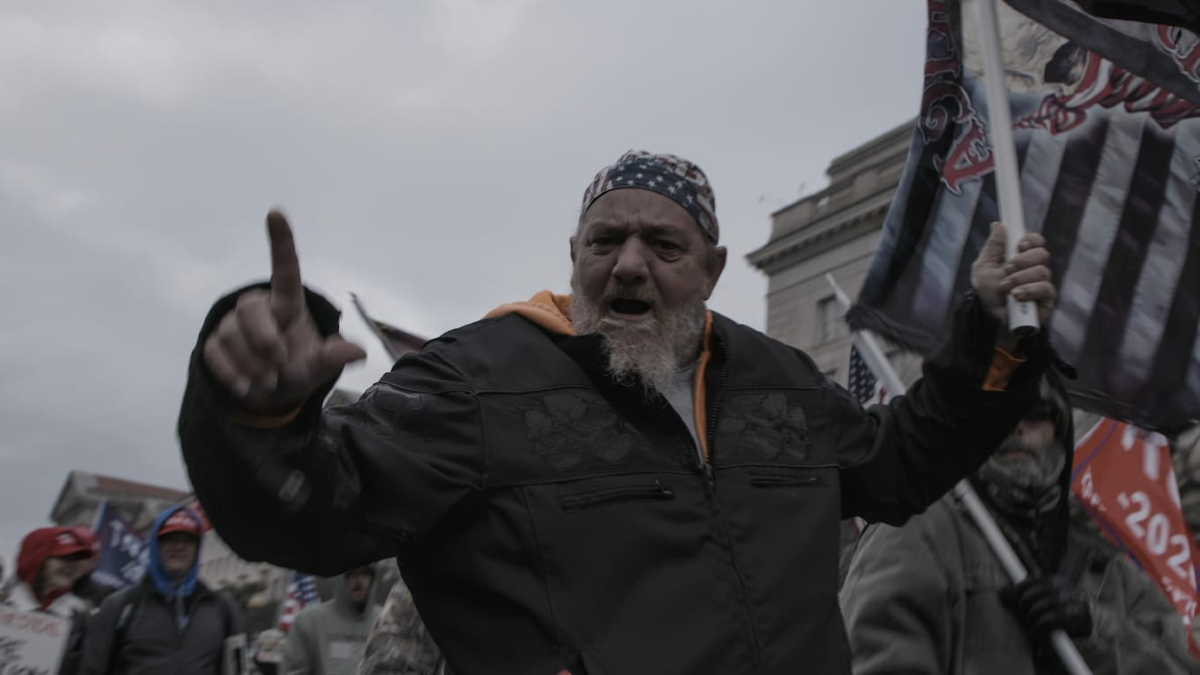Here's the entire article:
The Sixth, a new documentary about the January 6 insurrection from an Oscar-winning filmmaking duo, was intended to be released on Amazon’s Prime Video. Instead, the A24 documentary is only available for premium rental, and the studio hasn’t even bothered with promoting it.
Directed by Sean Fine and Andrea Nix Fine (LFG), and produced in collaboration with A24, The Sixth revisits the 2021 insurrection on the U.S. Capitol, led by far-right Trump supporters who believed the 2020 election was “stolen,” from the perspective of six public service workers: Maryland congressman Jamie Raskin, congressional aide Erica Loewe, photographer Mel D. Cole, and three police officers. On May 3—the day The Sixth was released—Politico published a report questioning the absence of marketing for the documentary and the strange, seemingly last-minute change in release strategy.
Amazon denies having set a release date for The Sixth, but several people who spoke with Politico said they’d been told the documentary would be released on Prime Video—free to subscribers—on May 3. “The subjects were all told that the movie would be available on Prime starting at the beginning of May, and I was certainly telling that to people because the premiere was completely sold out,” Raskin told Politico. “I was telling people they’d be able to access it on Prime Video. And then the Fines told us that although that was the original understanding, it was now not going to be available for streaming on Prime Video and people would have to pay for it. That obviously will change by millions the number of people who will see it.”
As journalist Michael Schaffer was putting the story together, he noticed that The Sixth was not included on A24’s website alongside other upcoming releases. When he reached out for comment, the film suddenly appeared on the website, where A24 describes it as “a testament to the importance of truth.” But how important can that truth be when A24 and/or Amazon is ensuring far fewer people are able to see it? The Sixth was, as promised, released on May 3. However, the Fines’ documentary is only available to rent, and only for the premium rental fee of $19.99.
Although the Fines seemed hesitant to criticize A24, which bankrolled the doc for an undisclosed sum (per the report, the budget was likely in the seven-figure range), Sean Fine commented on the sudden release change:
“We’re artists,” Sean Fine said. “You make something and somebody tells you it’s going to be in a museum — and then all of a sudden, it’s like, no, no, it’s only in this other room of the museum, and you have to pay more to go see it. You wonder why. Or if they say we’re going to keep your painting in a closet for a while and we’re going to bring it out when we think it’s good for people to see it. So it’s like, ‘Why is that?’”
It’s particularly odd for A24 to shy away from a wider release push for The Sixth given its recent marketing efforts for Civil War, Alex Garland’s vision of a not-too-distant future in which the U.S., fractured by unspecified political issues, has devolved into war. As Schaffer notes in his reporting, The Sixth takes a similarly less granular approach to the politics of January 6, instead focusing on workers whose typical day at the office was violently upended by an insurrection.
Is it that A24, a distributor known for releasing avant garde indies and challenging genre films, is apprehensive about alienating a large percentage of the general moviegoing public? That seems too dissonant to be true, though I suppose it could be. Or is it that Amazon, a company headed by a billionaire whose continued wealth relies on conservative politics, isn’t particularly inclined to ensure The Sixth is seen by the widest audience possible? That sounds more correct, but it still doesn’t explain why A24 isn’t promoting a film it invested millions of dollars in producing.
As Schaffer writes for Politico, Amazon’s handling of The Sixth is a smart business decision, but that’s “a notion that ought to concern Americans of all stripes.”
“A shared set of facts is pretty essential to a functioning society,” Schaffer continues. “We stopped getting our facts from the same place long ago, but burying something because it might anger people during election season seems bad in a new way.”
With seven months until the 2024 presidential election, each day it becomes increasingly clear that we are laboring under the illusion of choice, and any narratives to the contrary—any authors who dare observe our political landscape with clear eyes—should either be dismissed by the right as wholesale fabrications or suppressed by the left for undermining the person we all have to vote for, or else.
(featured image: A24)
